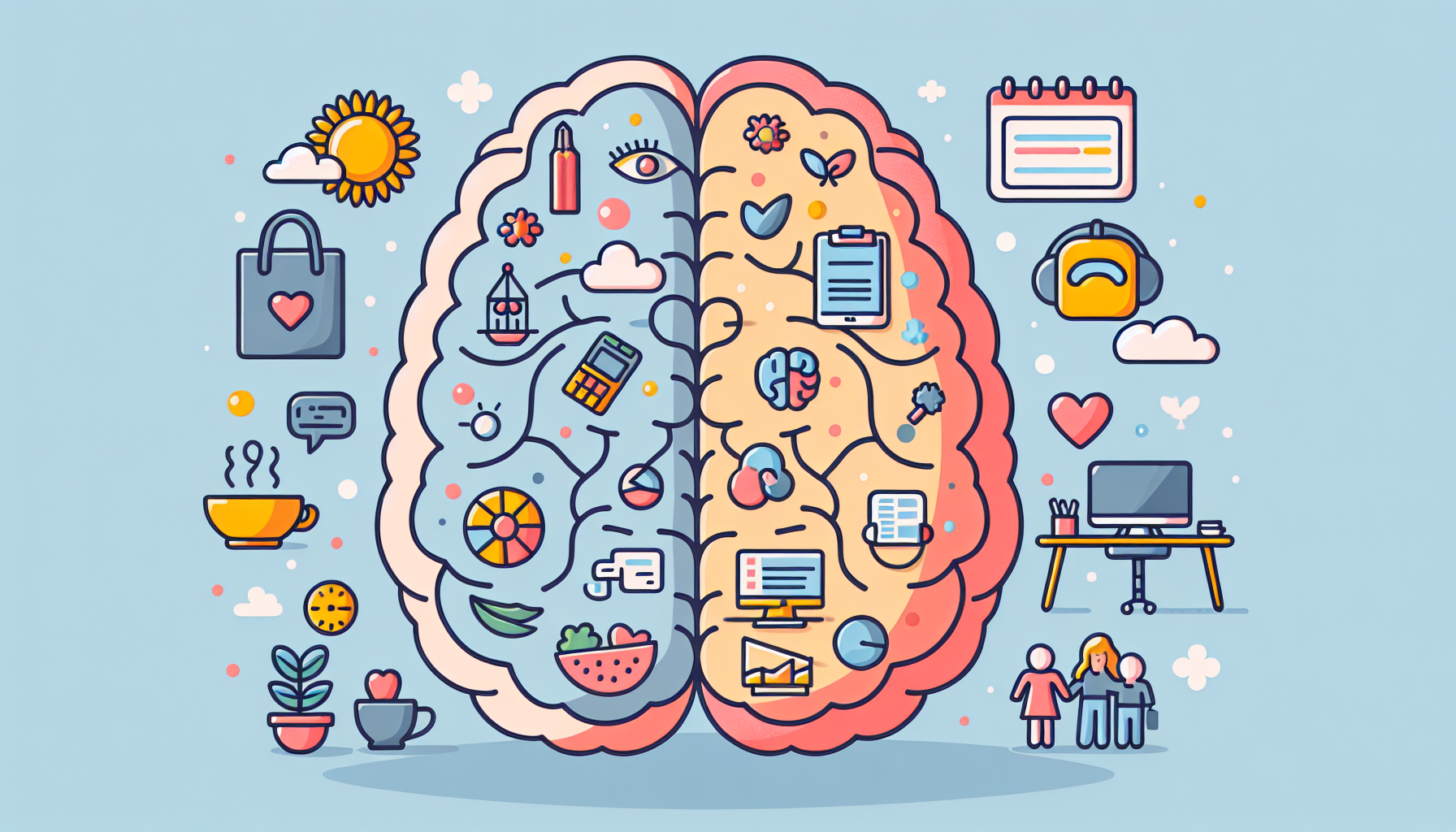In today’s fast-paced world, maintaining a healthy work-life balance is more crucial than ever. It’s a delicate equilibrium that, when managed properly, can lead to improved mental well-being, increased productivity, and a more fulfilling life. Central to achieving this balance is the health of our most vital organ—the brain. Brain health is a multifaceted concept encompassing cognitive function, emotional well-being, and neurological health. At Avix Health, we understand the importance of a well-nourished and stimulated brain in managing the complexities of everyday life.
Understanding Brain Health
The brain is a complex network, constantly processing information and controlling every aspect of our being. Brain health refers to the ability to remember, learn, play, concentrate, and maintain a clear, active mind. It’s about making the most of the brain’s capabilities and optimizing its function over the lifespan.
Good brain health is also a critical component in preventing cognitive decline and diseases such as Alzheimer’s and other forms of dementia. Engaging in activities that stimulate the brain, ensuring proper nutrition, and managing stress are all vital in maintaining a healthy brain.
The Role of Brain Health in Work-Life Balance
Achieving a work-life balance requires the ability to juggle the demands of work with the pleasures and responsibilities of personal life. A healthy brain enhances cognitive functions such as time management, problem-solving, and decision-making, which are essential for balancing these aspects of life.
Cognitive Function and Productivity
A brain that is well-cared for can process information more efficiently and adapt to the demands of multitasking, a common requirement in today’s workplace. For instance, research has shown that deep brain stimulation can improve cognitive function, which is essential for productivity and performance in both work and personal life.
Emotional Well-being and Stress Management
Emotional well-being is deeply intertwined with brain health. The ability to manage stress and maintain emotional balance is supported by a healthy brain. Techniques such as mindfulness and cognitive-behavioral approaches can help sustain mental wellness, as detailed in the article on Mental Wellness Strategies for Managing Long-Term Stress.
Neurological Health and Resilience
The resilience to bounce back from the stressors of work and life is partly determined by the neurological health of the brain. Recovery techniques are crucial, especially for those who have suffered neurological injuries. The article on Techniques to Accelerate Recovery from Neurological Injuries offers insights into fostering a resilient and robust neurological system.
Strategies for Enhancing Brain Health
To optimize brain health, a combination of lifestyle changes, nutritional habits, and cognitive exercises are recommended. Here are some strategies that can be integrated into daily routines:
Exercise Your Brain
Engaging in cognitive activities that challenge the brain is akin to strength training for your muscles. Activities such as learning a new language, as discussed in The Benefits of Multilingualism on Brain Health, can help build and maintain neural connections.
Proper Nutrition
The brain consumes a significant amount of the body’s energy, and proper nutrition is essential for peak performance. Nutrients such as choline play a significant role in brain development and function, which is further elaborated on in the article, The Role of Choline in Brain Development and Function.
Physical Exercise
Physical activity is not only good for the body but also for the brain. It can contribute to neural growth, as detailed in the resource on How Strength Training Contributes to Neural Growth.
Stress Reduction Techniques
Reducing stress is essential for brain health. Techniques such as yoga, meditation, and deep-breathing exercises can lower stress levels and improve cognitive function.
Quality Sleep
Sleep is crucial for brain health. It’s during sleep that the brain consolidates memories and repairs itself. Ensuring a regular sleep pattern is essential for maintaining a healthy brain.
External Resources to Enhance Brain Health
To further understand and implement strategies for brain health, here are some niche and specific resources that provide valuable information:
- Neuroplasticity and the Brain’s Ability to Heal – An in-depth look into how the brain can rewire itself, which is crucial for adapting to life’s demands.
- The Gut-Brain Connection – A resource exploring how gut health impacts brain function, emphasizing the importance of a healthy diet.
- Cognitive Training Tools – A collection of scientifically-backed tools designed to enhance various cognitive functions.
Conclusion
In conclusion, brain health is not just about preventing disease; it’s about optimizing our brain’s performance to handle the demands of work and personal life effectively. By focusing on brain health, we can achieve a work-life balance that brings us closer to a state of well-being and fulfillment.
Incorporating the strategies mentioned above, such as cognitive challenges, proper nutrition, physical activity, stress reduction, and quality sleep, can make a significant difference in our lives. By utilizing the resources provided, we can take actionable steps towards enhancing our brain health and, in turn, achieve a better work-life balance.
Remember, a healthy brain leads to a healthy life, and at Avix Health, we are committed to helping you find that balance.



